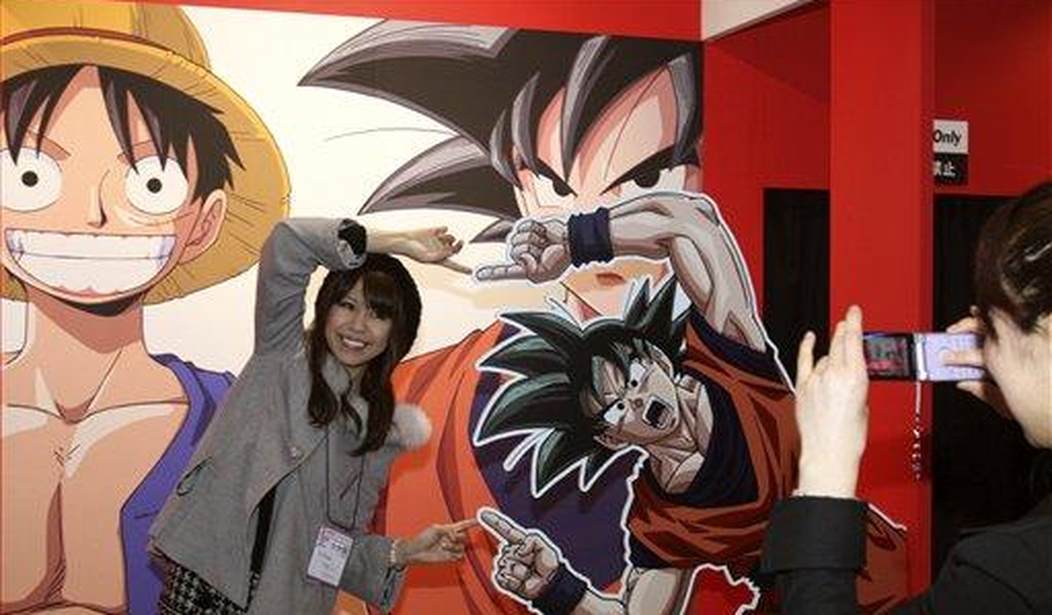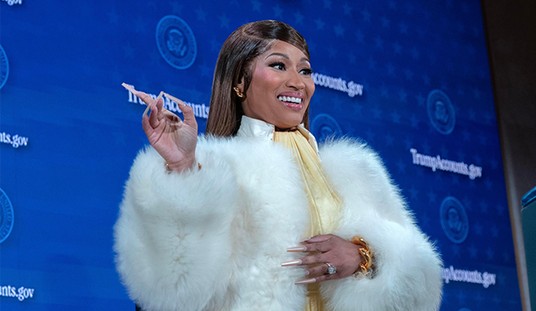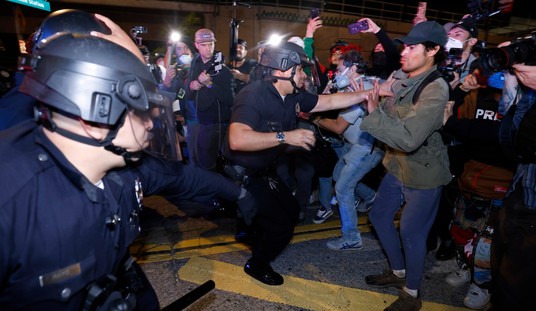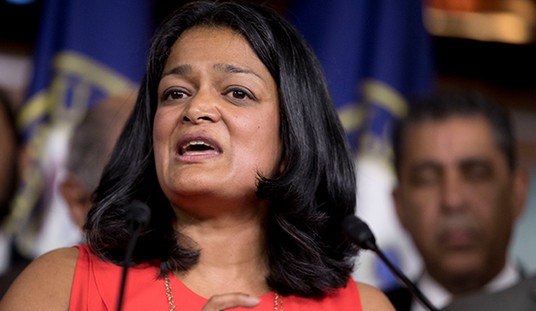I make no attempt to hide my geeky nature to you, my dear readers. In fact, over the many years that I’ve been a political writer, some of my most clicked-on works had more to do with discussing a form of escapism and its impact on the culture than what a politician was doing that day.
To be honest, in the last few years, I’ve been absolutely thrilled to see the rise of people just like me in various spaces, especially on YouTube. It’s always been my honest opinion that more voices were needed in the entertainment space that could properly take on the culture, understand it, and even teach us more about it.
But not everyone feels like that. While those on the right would rather just have everyone shut off their televisions and never pay to see a movie again in order to teach Hollywood a lesson, they are becoming increasingly fewer, which is a good thing. Attempting to tell everyone to just shut off any outreach from major publishers and studios isn’t too dissimilar from leftists telling everyone to get rid of their guns. It’s just not going to happen.
But despite the right consistently becoming more engaged in the culture and appreciating a more nuanced approach to escapism, the right’s refusal to understand or engage in the culture for so long can seep through from time to time.
This especially rears its head when it comes to the mediums of video games and anime, both of which have developed a reputation for being the source of a few problems in our society.
Loyal readers will have read quite a few of my articles in which I talk about the Japanese style of animation and story-telling known as “anime.” While I wouldn’t consider myself someone who has it on all the time, I did grow up watching it from childhood. Anime is an interesting medium because it allows for a kind of storytelling that wouldn’t really work in any other form.
Today, some of the best and most entertaining television comes out of Japanese anime. I still even maintain that I would much rather sit my child down and have him watch anime than a lot of Western media meant for children.
(READ: Anime Is Better for Your Kids Than American Television)
Lately, anime has come under attack thanks to a few A-list commentators in the right-leaning sphere making negative comments about it. Somehow, this prompted the idea that anime somehow creates issues like pedophilia, social isolation, and transgenderism.
The brutal truth is that anime does attract people that could be considered mentally ill. The number of anime avatars I see from people telling me I’m an “ist” or “phobe” could fill a couple of phonebooks.
But let’s take a step back for a second and ask a simple question. Did the anime create the mentally ill or did the mentally ill gravitate toward the anime? Before you ponder that question, ask yourself if the sport created the cheater or did the cheater gravitated toward the sport.
The answer is more complicated than one answer or another. Like any subculture, the people within it are affected by it, but how they’re affected is largely dictated by who they were before they got there.
Anime, in particular, is a medium that’s existed for decades and has as many different shows as the beach has grains of sand. There’s anime for children, anime for adults, love stories, action adventure, art house, and more. There are wholesome animes filled with solid messages and thoughtful storytelling, and vile animes that no one should watch. There are even different animation styles of anime, and like many art forms, anime has changed over time. The medium is so numerous in its entries that pointing to anime as the cause of problems, in general, is going to cause quite a few of its fans to look at you like a crazy person.
The same can be said of video games.
Video games have been blamed by both Democrats and Republicans as the cause of violence, depression, and insanity. While it’s gotten much better, there was a time when the first thing people looked for after a mass shooting was the video game console in their room.
Recently, Biden even took a swipe at video games, saying that it teaches players to kill people.
That’s not a take backed by science. In fact, more than a few studies have shown that video games actually reduce aggression in those that play them.
That’s not to say that video games can’t have a negative effect on people’s lives. They can be highly addictive. Boys, in particular, have their itch for adventure, discovery, and accomplishment scratched by video games. It’s much easier to create great things in Minecraft than it is to do so in the real world. It also allows us to do something men love to do naturally; compete, and do so in easy-to-access environments. While this isn’t inherently a bad thing, it can distract from real-world competitions where real accomplishment can take place.
(READ: Why Men Can’t Help but Love Video Games)
That said, the age when going outside and having an adventure is far harder for children nowadays, what with helicopter parents, nosey neighbors, and authorities willing to come down on parents if their children so much as venture out of the front yard (or not even go that far) but that’s a separate article.
But the truth is that video games are today’s great storytellers, dolling out some of the most heartwarming and fascinating tales told today. It easily outclasses both Hollywood and the music industry in sales combined on a yearly basis, and it’s no wonder why. While there are quite a few casual games that are fun time wasters, many of them are amazing works of art that deliver incredibly deep and meaningful stories.
Both anime and video games are subcultures that could be considered blue whales compared to many others. The NFL, the most popular sport in the United States, has a fan base of over 17 million globally. Anime’s fanbase dwarfs this with estimates at 2.88 billion watchers, a third of the global population. Netflix data alone shows that over 100 million households watch at least one anime.
Three billion people play video games across the globe, making it one of the biggest subcultures on this blue marble, and these aren’t just lazy people sitting on their couches. Major successes like Dave Chappelle, Elon Musk, Henry Cavill, and even the late Robin Williams are/were all gamers. Williams, in particular, named his daughter after the princess in Nintendo’s Legend of Zelda.
Looking at these numbers, one can see how even 100 or 200 crazy people who engage in these vast subcultures shouldn’t define them any more than a mass shooter should define America’s love of guns.
Conservatives need not fear anime or video games. It’s definitely okay to introduce your children to them, but like everything in this world, you should still monitor what they’re taking in. Not every video game or anime is meant for kids.
The right should be learning more about video games and anime before flatly condemning them as problems in our society. Doing so means missing out on some really great stories, adventures, and real works of art. Moreover, condemning something in ignorance may turn a good portion of the population against the cause, and their anger wouldn’t be unjustified. Having your stances and behaviors attacked for reasons they shouldn’t be is something conservatives understand well and shouldn’t replicate themselves.
If you are a conservative who enjoys anime and video games then feel free to speak up in the comments. Would love to hear about your favorites.















